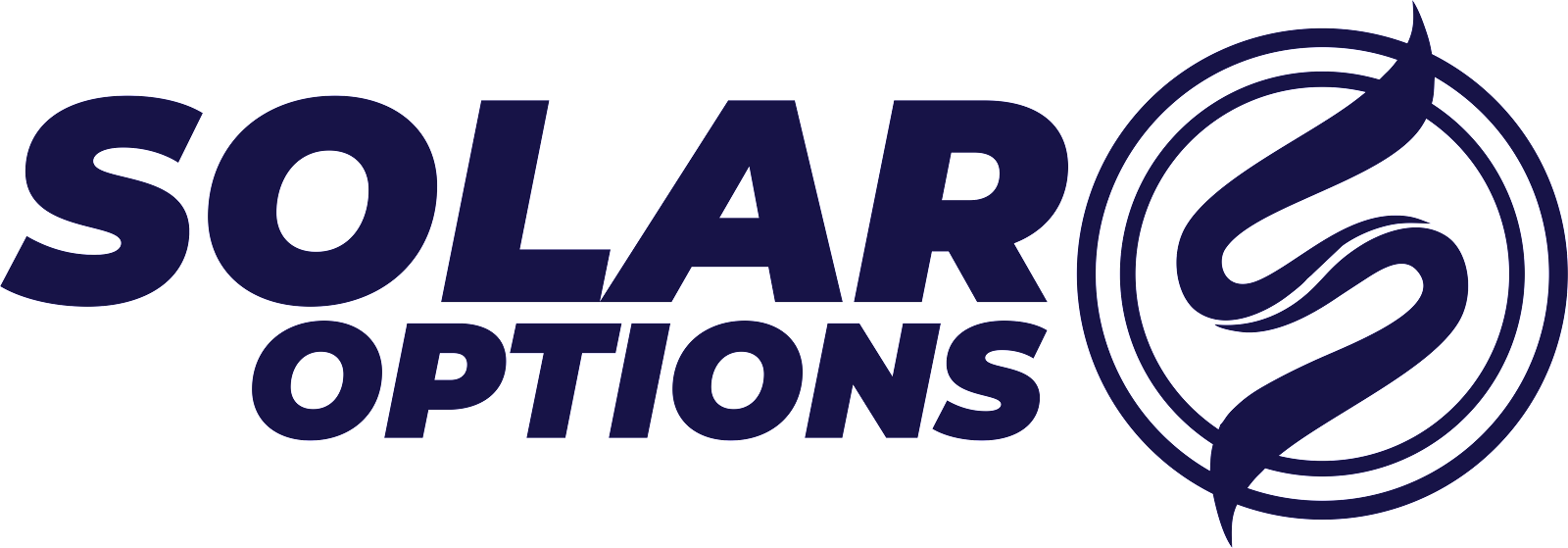Chat with us on WhatsApp via: +263 78 922 2847, +263 78 864 2437, +263 77 389 8979, +263 71 961 3479 and +263 71 884 5891.
Solar Options Zimbabwe is the go-to marketplace for making confident energy decisions and gaining control over the buying process.
Solar Systems Sales: +263 78 922 2847
Solar Systems Sales: +263 78 864 2437
Borehole Solutions Sales: +263 77 389 8979
Borehole Solutions Sales: +263 71 961 3479
Water Systems Sales: +263 71 884 5891
Sona Solar Zimbabwe proudly presents Jinko and Canadian Solar Panels as the premier choice for residential and commercial solar panel applications in Zimbabwe.
The ever-progressing landscape of solar energy demands careful consideration when selecting the most suitable products. With a wealth of experience in the field, Sona Solar Zimbabwe confidently advocates for Jinko and Canadian Solar Panels, ensuring that their customers benefit from the latest advancements and superior quality.
When exploring solar panels, the panel efficiency rating is alway listed on the datasheet. As you can see any solar panel with a maximum efficiency over 20% is a premium solar panel.
Fortunately, some solar panels are starting to come with a Performance Test Conditions (PTC) rating. A PTC is a more accurate measure of the efficiency of a solar panel, as it tells you how the solar panel will perform in a variety of climates and conditions. Some manufacturers even go a step further and look into the “system PTC rating”. This takes into account the efficiency of the inverter as well as the solar panel. As your solar panel system’s efficiency is in reality a sum of all its components. So even if you have the most efficient solar panel, an inefficient inverter will draw your overall efficiency down.
When it comes down to your Solar Panel installation, of course, you want to make sure you are installing the best solar panel there is.
In general, the two most important factors to consider when choosing a Solar panel are its efficiency and maximum power output. Solar panel efficiency is the measure of how much sunlight a solar panel can convert into electricity. Different brands and types of solar panels will have different panel efficiency.
The majority of residential solar panels typically have an efficiency of 15-18%, although premium modules can reach over 21%.
WHY IS SOLAR PANEL EFFICIENCY IMPORTANT?
- FASTER PAYBACK TIME: It’s a no-brainer that the more efficient your solar panels are the more solar energy your PV system is going to produce. And the more energy your Solar panel system is generating means the less energy from the Grid you’ll have to buy.
- BETTER FOR LIMITED SPACE: For properties with a smaller roof or land availability, more efficient solar panels still make solar energy a viable option. As a larger panel wattage combined with an efficient solar cell should be enough to still power your home from the sun.
- SAVE ON SPACE AND LABOUR With fewer panels needed to be installed to get the same size system as others, having efficient solar panels means that you can save more roof/land space and money on labour. Yet still gaining the same amount of solar energy required to power your home.
WHO MAKES THE MOST EFFICIENT SOLAR PANELS?
These are the most efficient solar panels for home solar installations as of 2023.- LONGi Solar: Headquartered in Xi’An China, LONGi Solar is one of the world’s largest manufacturers of high-efficiency monocrystalline solar cells and panels. LONGi was founded in 2000 and in 2020 shipped 14.7 gigawatts (GW). Based on PV-Tech’s latest bankability report, LONGi has achieved its highest bankability rating. To learn more, check out LONGi Solar’s supplier profile.
- Tongwei Solar: Founded in 2009, Tongwei Solar is one of the largest crystalline silicon solar cell production companies in the world. Tongwei Solar has four locations in China and is a subsidiary of the large agricultural product company Tongwei Group. They manufacture both polycrystalline and monocrystalline solar cells and panels, shipping 12.1 GW in 2020.
- JA Solar: JA Solar was founded in 2005 and their first manufacturing hub was built in Fengxian, China, where their main manufacturing hub now lives. They produce budget solar panels with half-cell technology that fall in the mid-range for efficiency – although they do outperform most of their mid-range competitors. In 2020, JA Solar shipped 10.8 GW. JA Solar has also achieved PV-Tech’s highest bankability rating. To learn more, take a look at JA Solar’s supplier profile.
- Aiko Solar: Aiko Solar specializes in the manufacturing of PERC solar cells. Based in China, Aiko makes three primary products: a 210 millimeter (mm), 182mm, and 166mm PERC cell, with the 210mm product being the newest, coming to market in 2020.
- Trina Solar: Founded in 1997, Trina Solar is a Chinese solar production company with solar products suitable for residential, commercial, and utility-scale projects. Recent company developments include the launch of a 210mm silicon cell panel (their Vertex series) and a solar tracking product for large-scale installations. Trina Solar has achieved PV-Tech’s highest bankability rating.
- JinkoSolar: JinkoSolar produces a wide range of solar and storage products for use across solar projects of all sizes. Recently, JinkoSolar opened a manufacturing location in Jacksonville, FL to help meet U.S. demand for their products.
- Canadian Solar: Its name gives it away, but Canadian Solar is a solar manufacturer originally founded (and still headquartered) in Ontario, Canada. Aside from a wide range of solar modules, Canadian Solar also produces and sells inverters and energy storage solutions.
- Zhongli: Zhongli is a Chinese technology conglomerate that owns Talesun Solar (founded in 2010), a leading PV manufacturer worldwide. Zhongli/Talesun produces both bifacial and mono facial solar modules.
- SunTech: SunTech (or SunTech Power) is a Chinese company with 21 years of experience in solar manufacturing. They produce mainly high-powered solar modules designed for large commercial, industrial, and utility-scale installation projects.
- First Solar: The lone U.S. company on our list, First Solar is also unique in that they produce thin-film solar panels (as opposed to the crystalline panels most other major manufacturers focus on). First Solar uses cadmium telluride (CdTe) as their semiconductor in their modules.
When exploring solar panels, the panel efficiency rating is alway listed on the datasheet. As you can see any solar panel with a maximum efficiency over 20% is a premium solar panel.
CALCULATING SOLAR PANEL EFFICIENCY?
To calculate a solar panel’s efficiency, scientists test the panel in controlled lab conditions. The Standard Test Conditions (STC) for calculating solar panel efficiency aims to see how much solar energy the cells can convert to electricity in a simulated clear 25°C summer’s day, with an irradiance of 1000 W/m2. However, the given maximum efficiency level is not necessarily what the panels will achieve in real-life conditions. Especially as we know the weather isn’t always consistent and certainly not always sunny in Zimbabwe |
| The Most Efficient Solar Panels on 2023 - Top Solar Brands Zimbabwe |
SOLAR PANEL EFFICIENCY CALCULATOR
Calculating the efficiency of a solar panel is actually rather simple. The formula is as follows: Efficiency (%) = [Power output of Panel / (Area of panel x Solar Irradiance)] x 100WHAT FACTORS IMPACT SOLAR PANEL EFFICIENCY?
CELL TYPE
There are three main types of solar cells used in the manufacturing of solar panels: Monocrystalline, Polycrystalline and Thin-Film. Each type of solar cell has a different level of efficiency.- Monocrystalline solar panels are the most efficient type of solar panels. This is because the cells are manufactured from just one single piece of silicon. Although they are the most efficient at converting sunlight into electricity, they are also the most expensive.
- Polycrystalline solar panels are made up of multiple fragments of silicon crystals melted together. As the silicon isn’t as pure, this makes them slightly less efficient than monocrystalline solar panels, however more affordable.
- Thin-film solar cells are both flexible and low in profile. Manufactured from just a thin layer of semi-conducting material, on top of electrical components, thin-film panels are the least efficient out of all three. However, as they are lightweight and more flexible they can be used for more diverse applications.
BUSBARS AND WIRING
If you look closely at the surface of a solar panel, you will see a bunch of thin lines. These are a series of copper or aluminium wires, that conduct electricity. Solar panels which have thinner busbars will be more efficient, as there will be a reduce amount of shading on the cell, allowing the panel to absorb more light. Solar Panel manufacturers which use multi-busbar technology, which utilise multiple ultra-thin busbars increase the overall solar panel’s efficiency. Some solar brands, for example Sunpower, now use Interdigitated Back Contact cells (IBC), which removes all the busbars and wiring from the face of the solar panel to the back, so that more sunlight can be absorbed.BACKING
Whilst you may have never considered this a factor, the type of backsheet a solar panel has can also effect your panel’s efficiency. For example, having a traditional white backsheet, over an all-black panel, may not necessarily look the part, however will operate slightly more efficiently. This is because an all-black panel will attract more energy from the sun, overheating the panel and effecting it’s ability to produce electricity.Whilst conventional solar panels only have PV cells on one side, you can now install bifacial solar panels which has a reflective transparent backsheet, to capture more energy. Some manufactures claim that bifacial solar panels can even produce up to 30% more energy.
DO SOLAR PANELS LOSE EFFICIENCY OVER TIME?
Solar panel efficiency does decrease over time due to the natural degradation of the solar cells. On average the efficiency of a solar panel falls by 0.5% per year. However, most manufactures provide a 25-year performance or “linear output” warranty. This guarantees that the solar panel’s output won’t drop below 85% of its original efficiency within the first 25 years.WHAT ELSE REDUCES SOLAR PANEL EFFICIENCY?
There are a few other external factors that can affect the efficiency of your solar panel installation. Most of them can be considered and overcome before your Solar PV system is even installed. As long as you choose a trusted solar panel installer.- SHADING: Nearby obstructions such as chimneys or trees, can provide enough shade on a solar panel to impact it’s efficiency by up to 50%. Before installing a Solar PV system it is important for your chosen installer to carry out a shading analysis to evaluate any potential issues.
- LAYOUT DESIGN: In Zimbabwe, to receive the most amount of sunlight, it is always recommended that your solar panels are installed onto a south-facing roof, at a pitch of 30-45 degrees. However, as we know, these ideal conditions can’t always be met. It is important that your energy advisor designs the best possible layout that matches your energy needs.
- MAINTENANCE: A dirty or damaged solar panel caused by pesky birds or nearby trees, can reduce your solar panel system’s overall efficiency. It is important to keep your PV system well maintained, to check for any irregularities in your energy production, to keep your solar panels clean, and protect your system from any birds that may nest underneath them.
- WEATHER CONDITIONS: Although many may think Solar panels are less efficient in the winter, it is in fact extreme heat that can do more damage to your solar panels. A well-ventilated solar panel will always operate more efficiently than one that isn’t, simply because when the surface of the solar panel gets hotter, its efficiency drops. It is for this reason that on-roof solar panels are more efficient compared to solar tiles, and integrated solar panels. Solar panels actually operated best in cold, yet sunny conditions.
ARE PREMIUM EFFICIENCY SOLAR PANELS RIGHT FOR YOU?
So if you have limited space for your solar panels, partial shading, or a roof that isn’t ideal, you may want to consider one of the most efficient solar panels in our list above. Nevertheless, whilst efficient solar panels do come with some great advantages, the chances are they are probably not required for most homeowners. This is where a survey comes into play. Here at Solar Options Zimbabwe we offer remote assessments and designs, to find you the perfect solar panel system which is both right for your home and pocket. If you are looking to get the most efficient solar panels installed, no problem at all.Here at Solar Options Zimbabwe, we install a variety of solar panels. Offering a selection of the most reliable, efficient, and cost-effective panels on the Zimbabwe market. Simply click enquire now and fill out of short form, or contact us at +263 78 864 2436 to speak to an energy advisor.
About Solar Options Zimbabwe:
Solar Options Zimbabwe Empowers People To Make Smarter Solar Systems Decisions, Through Simplicity, Transparency, and Choice. Solar Options Zimbabwe gives you access to transparent information so you can make informed decisions, confidently. We connect you with The Best Solar Companies in Zimbabwe who are competing to earn your business.Solar Options Zimbabwe is the go-to marketplace for making confident energy decisions and gaining control over the buying process.
Contact Solar Options Zimbabwe:
Solar Options Zimbabwe gives you access to transparent information so you can make informed decisions, confidently. Get in touch with us directly via WhatsApp by clicking the Chat with WhatsApp below.Solar Systems Sales: +263 78 922 2847
Solar Systems Sales: +263 78 864 2437
Borehole Solutions Sales: +263 77 389 8979
Borehole Solutions Sales: +263 71 961 3479
Water Systems Sales: +263 71 884 5891


.jpg)






